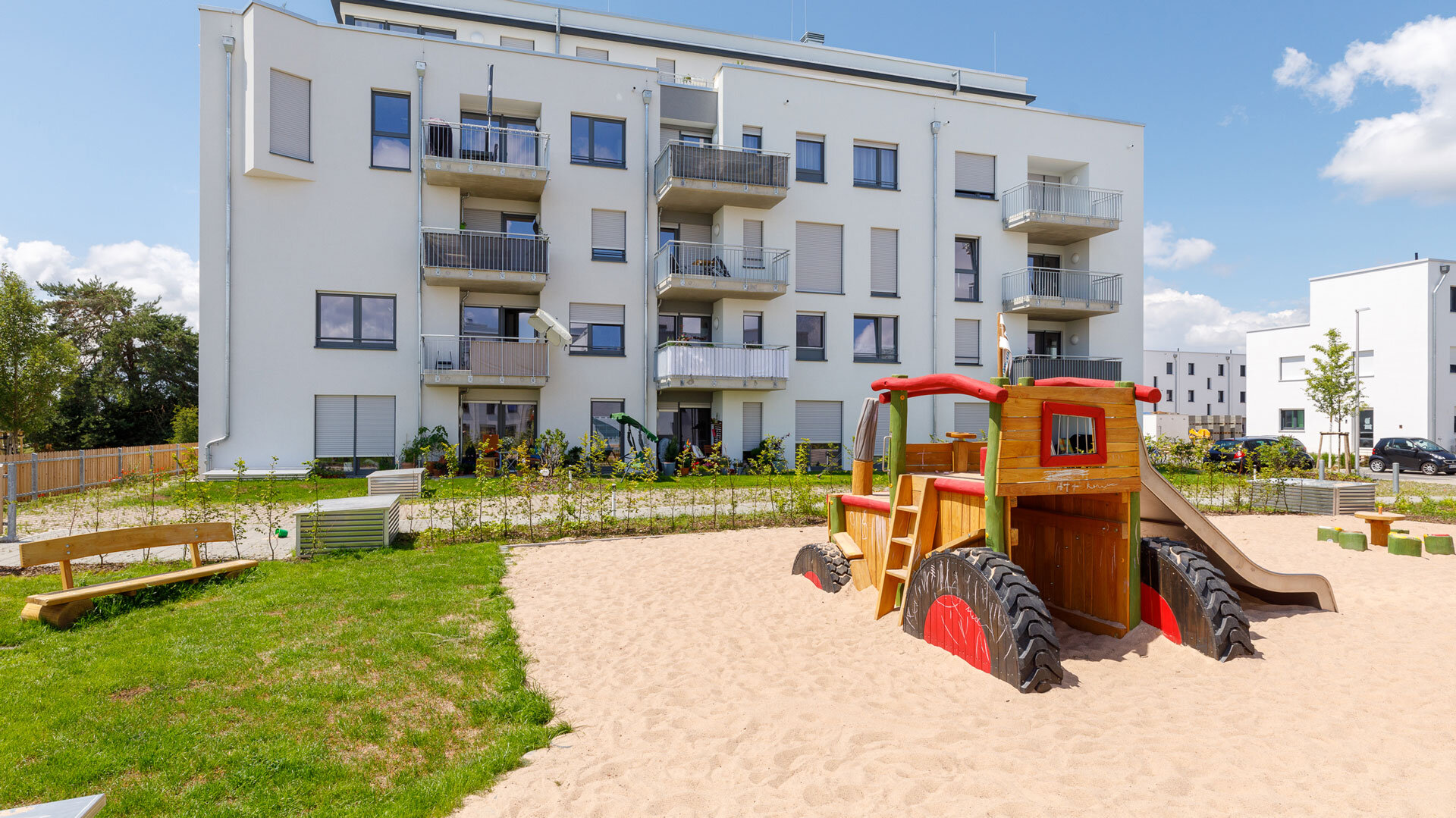Berlin, 13 December 2022 – Since 2016, the GBI Group has sold more subsidised new-build apartments to investors than any other project developer in Germany. A total of 906 units were acquired by pension funds, insurance companies, foundations, private investors or banks in the period up to mid-2022. GBI's top spot is documented in a recent study conducted by the real estate researchers bulwiengesa and real estate investor Industria Wohnen, entitled "Subsidised apartments as an investment", according to which, GBI's sales are spread over 12 deals. The Instone Real Estate Group and Bonova Germany occupy second and third place among new-build developers, with 861 and 718 units respectively.
"We are very proud of the findings of the study, because our leading position confirms our special role in establishing subsidised housing as an option for private investors," explains Reiner Nittka, CEO of GBI Holding AG: "When we developed the first subsidised apartments in 2016, there was no guarantee that the units could ultimately be sold to private portfolio holders." No explicit regulations existed in this regard under the funding guidelines of the federal states. Private capital was not officially permitted in this area - either directly or indirectly. "As such, it was necessary to enter into intensive negotiations with the authorities," says Nittka: "Despite these complicated initial conditions, our entire team was brimming with resolve, verve and confidence. Our top position - now documented - is a well-deserved reward for this attitude." Furthermore, the entire industry benefited from GBI's pioneering role.
This top spot in bulwiengesa's rankings is not the first time GBI's special services to the subsidised housing product line have been recognised. The group had already been awarded the immobilienmanager Award 2022 in the spring of this year. The coveted industry award was presented in the Investment category, and was bestowed for the successful development of an investment-ready product line in this segment.
To date, GBI is largely active in Bavaria, Baden-Württemberg, Lower Saxony, Hamburg, Hesse and North Rhine-Westphalia. In order to extend activity to other federal states, the group is offering comprehensive subsidy management for investors via GBI Capital. Support is available for all subsidised housing services - from project development right through to fund management.
The transaction comprising 906 subsidised GBI apartments is also distributed among numerous well-known institutional investors. Units were acquired by funds from Commerz Real, Catella as well as Industria Wohnen, VR Bank Metropolregion Nürnberg, VW-Belegschaftsstiftung and a number of family offices. HanseMerkur Grundvermögen also acquired a seed portfolio from GBI for the HMG Grundwerte Wohnen SOZIAL fund, which was co-initiated by the GBI, launched with projects of the corporate group, and is set to grow to 500 million euros. "In this way, private money, which often comes from the old-age provision of German citizens, can be securely invested via insurance companies or pension funds," explains Simon Behr, Managing Director of GBI Capital, outlining the concept. "It's a win-win situation, because it creates much-needed affordable housing. If the federal government's target of 400,000 new units per year is to be achieved in the future, this will only be possible with numerous subsidised units," continues Behr.
For investors, the prospective returns offered by subsidised housing are not much below those afforded by freely financed projects. Furthermore, subsidised housing poses an extremely low risk of rent default. "Moving is rare, which means much lower maintenance costs. Individuals tend to be more careful because they are well aware that they are unlikely to obtain an equivalent apartment for an equivalent price again," explains Simon Hübner, CEO of GBI Holding AG.
GBI has also realised subsidised projects in the area of student housing. "In the future, such housing propositions should also be available to meet the demands of senior citizens," asserts Hübner. "The baby boomer generation requires smart, modern and subsidised housing. Society, policymakers and the real estate industry must be prepared for this." The goal is also to implement subsidised housing within the framework of neighbourhood developments wherever possible - for example, in combination with local shopping facilities, privately financed housing, assisted living for the elderly, student accommodation, day care centres, serviced apartments, offices or hotels. "No matter what objectives a city has in relation to subsidised housing, as a comprehensive project developer we can plan and realise the right property combination," says Hübner.

